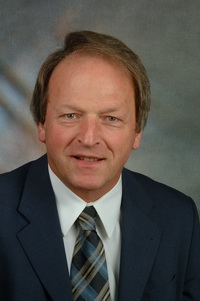Honorary Professor
Curriculum Vitæ
Prof. Dr.-Ing. Gerd Hirzinger received his Dipl.-Ing. degree and the doctor's degree from the Technical University of Munich, in 1969 and 1974 respectively. In 1969 he joined DLR (the German Aerospace research establishment) where he first worked on fast digital control systems. 1976 he became head of the automation and robotics laboratory of DLR, where he and his co-workers soon got several awards for innovative technology transfer from robotics research to applications. In 1991 he received a joint professorship from the Technical University of Munich.
Since 1992 he has been director at DLR's institute for "robotics and mechatronics". He has published more than 100 papers in robotics, mainly on robot sensing, sensory feedback, mechatronics, man-machine interfaces, telerobotics and space robotics. He was prime investigator of the space robot technology experiment ROTEX, the first real robot in space, which flew onboard shuttle COLUMBIA in April 93. He is senior member of IEEE, he was vice-program chairman of the IEEE Conference on Robotics and Automation 1994 and 1995, program chairman of IROS (Intelligent Robot Systems Conference) 1994 and organizer of the 7th International Symposium on Robotics Research. In a large number of other international robot conferences he was program committee member or invited plenary speaker. For many years he has been chairman of the German council on robot control and administrative committee member of the IEEE Society on Robotics and Automation. He rejected a number of chairs offered to him by different European Universities. He received several national and international awards, e.g. in 1994 the Joseph-Engelberger-Award for achievements in the robotic science and in 1995 the Leibniz-Award, the highest scientific award in Germany and the JARA (Japan robotics association) Award. In 1996 he received the Karl-Heinz-Beckurts-Award, Germany's most important award for outstanding promotion of the partnership between science and industry, and in 1997 the IEEE-fellow award. In 2004 he got the order of merit of the Federal Republic of Germany and became member of the "wall of fame" of the Heinz Nixdorf Computer Museum. In 2005 he received the IEEE Pioneer Award of the Robotics and Automation Society and the "honorary citizenship" of Budapest Tech, and in 2007 the IEEE Field Award "Robotics and Automation".
